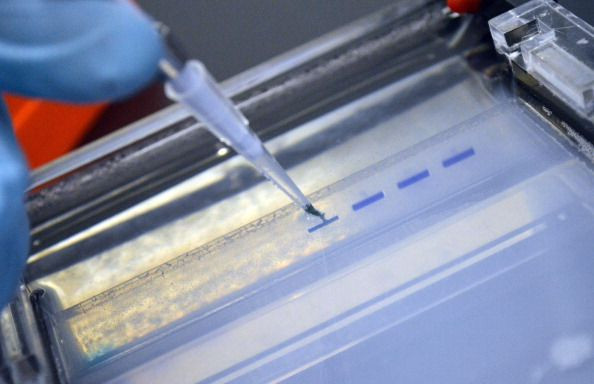HIV Vaccine Research 2017: Super Antibody Capable Of Neutralizing 206 Of The 209 Strains Of AIDs Virus

Vaccines work by providing antibodies that the immune system needs to fight specific infections; it's similar to supplying an army with weapons to ensure soldiers are prepared for war. One of the biggest hurdles to creating a vaccine against HIV is that scientists still do not have an antibody capable of destroying the virus' different strains. However, in a new study, a team of international researchers have created what they are calling the most powerful HIV-attacking antibody ever. The antibody is so powerful, they believe it could be the final piece of the puzzle to creating the elusive HIV vaccine.
The super antibody is based off a unique pair of antibodies found in a patient which proved capable of neutralizing a wide range of HIV strains. For example, although we view HIV as a single virus, according to Avert.com, there are actually a number of different strains and subtypes of the virus. This, of course, makes it especially difficult to create a universal vaccine. However, the two antibodies found in this particular patient, both of which were variants of an antibody known as DH511, addressed this common problem. The team then took these antibodies apart and recombined them to create a single “super antibody,” that proved capable of of neutralizing 206 of the 209 strains of HIV found throughout the world, The Scientist reported.
Read: HIV Cure 2017? New Research Suggests Way To Theoretically Eliminate Virus From Body
The team believes that eventually an HIV vaccine will come from this super antibody, but many more years of research are likely ahead of them. For example, the team explained that it's not enough to just find a super antibody in a person; they have to figure out how the antibody was developed in the host. Still, the finding is exciting, and shows that humankind is slowly but surely creating a path to defeat HIV.
In the meantime, without an HIV vaccine, science has made strides in other methods of preventing its spread. Safe sex and the use of condoms remain the most effective ways to prevent HIV transmission, but pre-exposure prophylaxis drugs also help ward off the virus in the most at-risk members of our population. According to the Centers for Disease Control and Prevention, the drugs are available in daily pills, vaginal rings, and injection forms, and help to significantly reduce the risk of contracting HIV by up to 92 percent. The drugs work by destroying the virus’ ability to reproduce within the body, but unlike a vaccine, these drugs must be taken regularly, sometimes daily, in order to continue being effective.
Source: Williams LD, Schatzle S, McDaniel JR, et al. Potent and broad HIV-neutralizing antibodies in memory B cells and plasma. Science Immunology . 2017
See Also:
Injectable PrEP Drug Provides Long-Acting Protection Against Vaginal HIV Transmission
Published by Medicaldaily.com



























